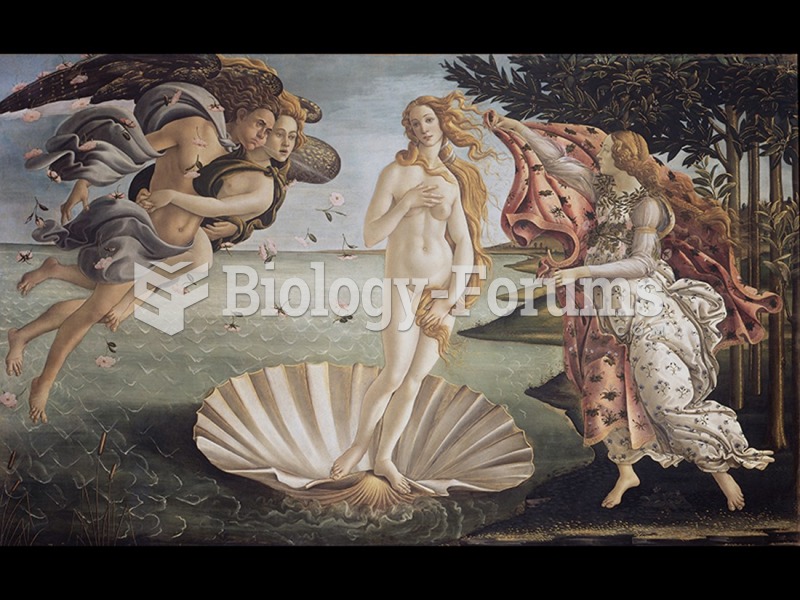This topic contains a solution. Click here to go to the answer
|
|
|
Did you know?
During pregnancy, a woman is more likely to experience bleeding gums and nosebleeds caused by hormonal changes that increase blood flow to the mouth and nose.
Did you know?
Eat fiber! A diet high in fiber can help lower cholesterol levels by as much as 10%.
Did you know?
Eating carrots will improve your eyesight. Carrots are high in vitamin A (retinol), which is essential for good vision. It can also be found in milk, cheese, egg yolks, and liver.
Did you know?
Sperm cells are so tiny that 400 to 500 million (400,000,000–500,000,000) of them fit onto 1 tsp.
Did you know?
In the United States, an estimated 50 million unnecessary antibiotics are prescribed for viral respiratory infections.
 Pronation and Supination Pronation–Lying prone (face downward); also turning the palm downward. Supi
Pronation and Supination Pronation–Lying prone (face downward); also turning the palm downward. Supi
 (A) Dilation stage: uterine contractions cause dilation of the cervix; (B) expulsion stage: birth, ...
(A) Dilation stage: uterine contractions cause dilation of the cervix; (B) expulsion stage: birth, ...





